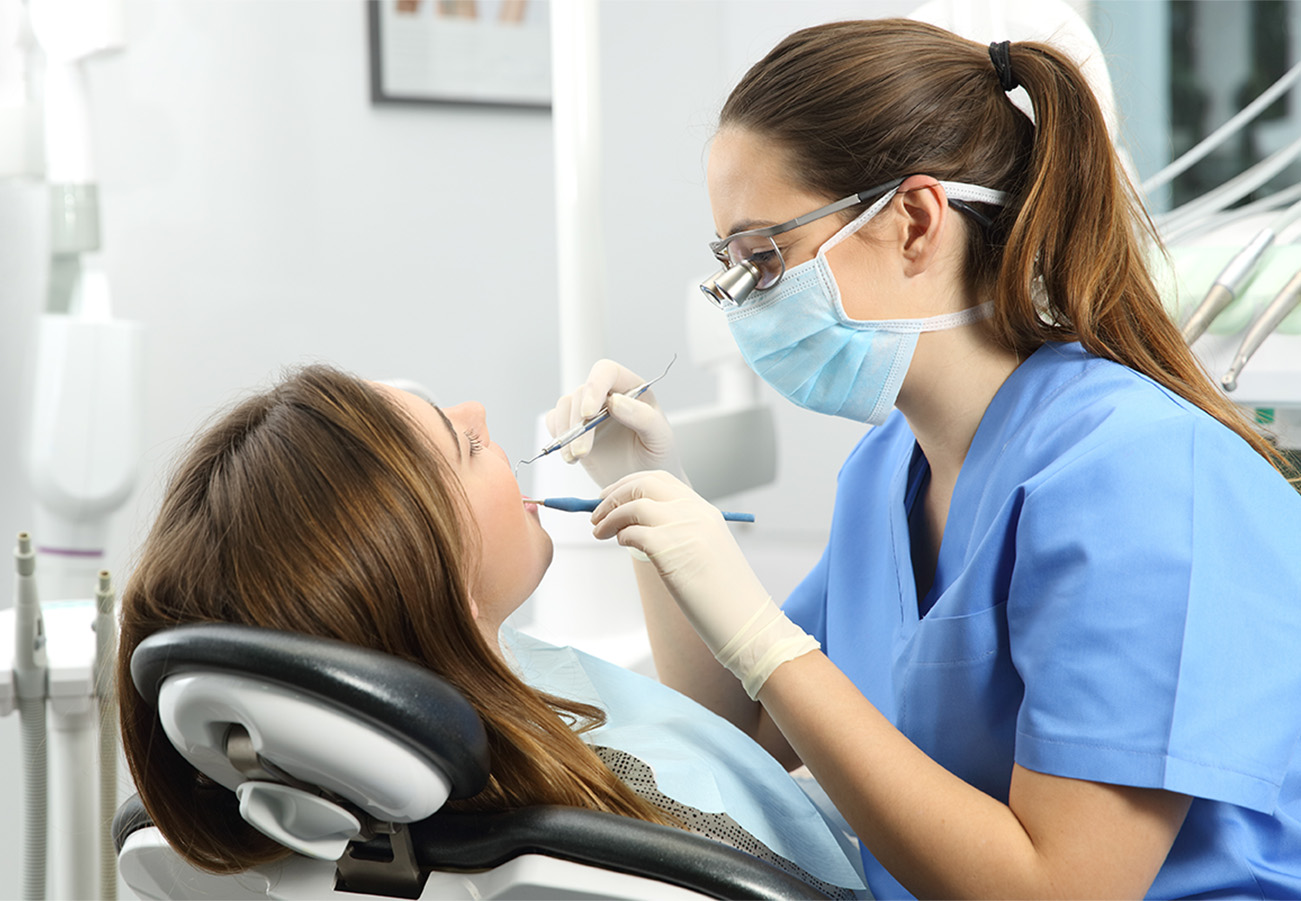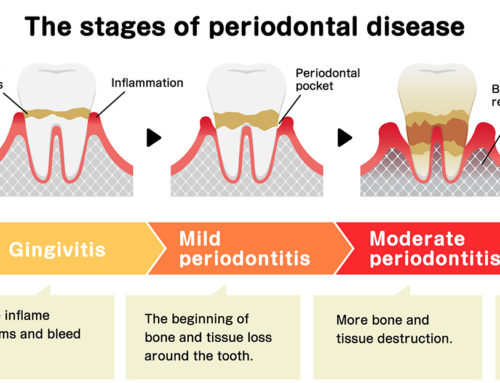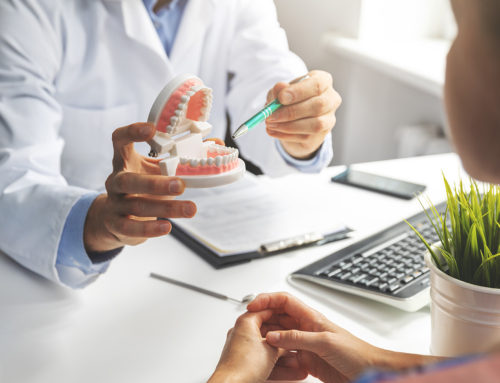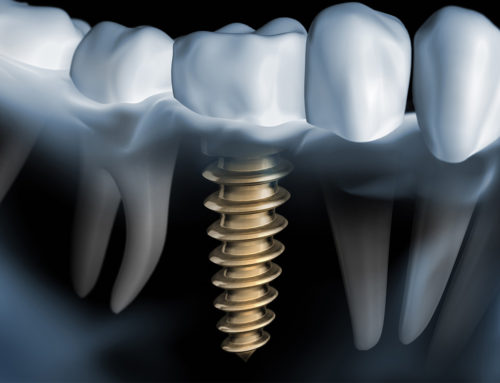Gulf Perio & Implants will recommend how often you should have a periodontal maintenance visit. The frequency will be determined by the type of periodontal disease you have, the type of periodontal treatment you have had in the past, how you’ve responded to those treatments, and how quickly you develop plaque. The most important factor, however, is how dedicated you are to good hygiene at home.
Periodontal disease – literally, disease “around the tooth,” – affects the gums and bone to which a tooth is attached. It is a bacterial infection that causes tooth loss and gum recession, and is often the result of infrequent visits to the dentist for routine adult prophylaxis. Such disease is also marked by excessive amounts of plaque and tartar that make evaluation of your oral health difficult. As a result, a full mouth debridement is often necessary to complete a proper evaluation and subsequent cleaning.
The American Dental Association describes a full mouth debridement as the “gross removal of plaque and calculus that interfere with the ability of the dentist to perform a comprehensive oral evaluation.” Quite simply, the removal of plaque and tartar that is so prominent in the mouth that removing it will take a considerable amount more effort and time than in a typical cleaning.
The procedure for full debridement is like any other prophy however, with the exception of the time involved and the fact that some form of anesthetic may sometimes be used to numb the area. This can be necessary if you experience sensitivity due to recessed gums that have exposed the tooth’s cementum, or because you anticipate a degree of anxiety during the procedure.
Most periodontists would agree that after scaling and root planing, many patients do not require any further active treatment. However, the majority of patients will require ongoing maintenance therapy to sustain good oral health.
Why is periodontal maintenance necessary?
Gum disease is caused by the bacteria found in plaque. The toxins produced by the bacteria attack your gums and teeth. And, if the plaque is not removed, it will harden and form calculus.
Even someone dedicated to good oral hygiene will be unable to completely prevent the formation of calculus on the teeth. Flossing and brushing will keep the calculus to a minimum but regular maintenance is needed to professionally remove what has been missed. During your maintenance cleaning, our hygienist will also check for hidden periodontal problems.
How often do I need a maintenance visit?
Dr. Wright will recommend how often you should have a periodontal maintenance visit. The frequency will be determined by the type of periodontal disease you have, the type of periodontal treatment you have had in the past, how you’ve responded to those treatments, and how quickly you develop plaque. The most important factor, however, is how dedicated you are to good hygiene at home.




